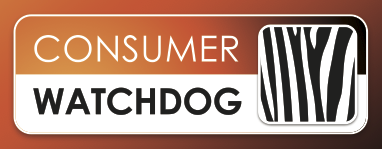Rather than be totally suspicious I contacted the presenter and asked her to explain. She told me, by SMS, that the company can “teach people how to trade forex online and make between 10 and 30 percent of their investment every month”. She went on to say that “we open a trading account for you and you can put any amount you want to start trading with but we recommend US$1,000”.
My first reaction is that nobody, I mean nobody, in the world makes that sort of profit consistently and here’s how I can justify that claim. If mere financial mortals like you, me and the people attending this presentation can make that sort of profit, why aren’t banks doing it? Why aren’t American and European banks, who are in such desperate states, making this sort of money? Why aren’t governments around the world earning a little extra this way? The reason is simple. It’s impossible to make that sort of money with any sort of investment.
You really have to ask yourself why on earth the creators of the scheme aren’t just quietly making their own fortunes instead of inviting you to join. What’s in it for them when you join?
The answer is actually very simple. What they really want is the P12,000 fee you have to pay them to join the scheme.
Once you do some digging the situation becomes more intriguing. Cashflow Pro is the brainchild of a South African called Jabulani Ngcobo. According to the South African press Ngcobo is currently under investigation by the South African Reserve Bank and the South African Police Commercial Crimes Unit. It seems that for someone with no qualifications and no business history the amount of money he’s bringing in is too much to be credible. There are suspicions that he’s running either a pyramid or Ponzi scheme.
My dictionary defines a Ponzi scheme quite well. It’s
“a form of fraud in which belief in the success of a nonexistent enterprise is fostered by the payment of quick returns to the first investors from money invested by later investors.”I’m not going to say that Ngcobo is running a Ponzi scheme but he certainly IS running a scheme that offers unbelievable profits. That sort of company simply can’t be trusted.
I can’t help but compare what Cashflow Pro offers with what Stock Market Direct used to offer. Well they did until their founder, Tony Samuels (or whatever his real name was) skipped the country with several million of investors money. They also offered a rather exaggerated sense of profit, took a LOT of money from people to join and then actually offered very little in return.
I asked a friend (thanks Rob) who knows a bit about forex trading a question. “How easy is it to make money from trading forex?” His answer was simple. “As easy as it is to lose money trading forex.”
The more I think about it the more I’m tempted to answer the question myself by saying “It’s easier to lose money trading forex than it is to make it.” Here’s why. Forex trading is just a form of gambling that the exchange rate between two currencies will change in your favour. You buy Mongolian Togrogs (No, I’m not making that up) using your US dollars when you think they’re cheap and later sell them when their value against the dollar has increased. The difference, minus the commission you pay to your broker or bank, is your profit. The problem is that exchange rates are notoriously unpredictable and they rarely change dramatically. The other problem is that if the Togrog goes up, the dollar, compared to it, has gone down. For every increase there’s another decrease. Half of all exchange rate changes are bad for investors. Half the time, unless you’re very lucky or wise, you’ll lose value. However you have to add on to that the costs in commissions and fees.
However, all of this is based on the assumption that the forex trading scheme is legitimate.
According to the North American Securities Administrators Association and as reported on Wikipedia:
“off-exchange forex trading by retail investors is at best extremely risky, and at worst, outright fraud.”The U.S. Commodity Futures Trading Commission issued an online warning to consumers that said:
“In a typical case, investors may be assured of reaping tens of thousands of dollars in just a few weeks or months, with an initial investment of only $5,000. Often, the investor’s money is never actually placed in the market through a legitimate dealer, but simply diverted - stolen - for the personal benefit of the con artists.”They conclude with a simple suggestion to investors:
“If you are tempted to invest, make sure you understand these products and above all, only invest what you can afford to lose.”The lesson is simple. Anyone offering you a Get Rich Quick scheme is more interested in their own income than they are in yours. Anyone who needs your money before you can join the scheme is after the joining fee above everything else. Anyone offering you quick gains on the stock market or from foreign exchange is lying or a fool. Or both.


No comments:
Post a Comment